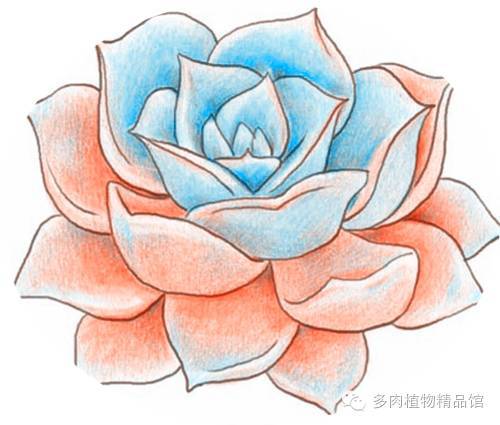China-Africa Forum-- take us to recall the journey of China-Africa cooperation

Text: DaDa
Da da, what news has attracted more attention recently? Hee hee, of course, is a forum meeting that has attracted worldwide attention. In the propaganda film "Building Dreams Together and Sharing Destiny" at the opening ceremony of the Beijing Summit of the Forum on China-Africa Cooperation, we can learn that China and African countries are good brothers, good friends, heart-to-heart, common destiny and common development. While developing its own economy, China is willing to share the development achievements of reform with African countries, help them leap from poverty to prosperity, and bring real happiness to the African people. Give full play to China's image as a responsible big country. Below, Xiao Bian will give you a specific interpretation of the course of China-Africa cooperation over the past 18 years...
FOCAC was established in 2000 to strengthen China-Africa economic cooperation and trade. At the beginning, the rest of the world may find it difficult to understand. Bilateral trade and investment between China and Africa were limited at that time, and Africa's prospects were much worse than they are now. Since then, under the impetus of the China-Africa Cooperation Forum, economic and trade cooperation between the two sides has shown explosive growth. Eighteen years later, China has emerged as Africa's largest trading partner, and bilateral trade and investment relations have grown rapidly. (Columnist Ni Jerry)
Trade exchanges lay the foundation for China-Africa relations
African markets are becoming increasingly important to China. China has made Africa an important export destination, and Africa is hungry for good, cheap Chinese products. China's total exports to Africa have more than doubled from US$47 billion in 2009 to US$106 billion in 2015 and have remained stable since 2015. China's exports to Africa have grown by an average of 14% year-on-year since 2010, five percentage points higher than China's exports to other markets. Africa is a dynamic market for China. Indeed, Africa accounts for 10 of the top 15 fastest-growing markets for Chinese exports.
In recent years, demand for Chinese products in Africa's two largest economies, Nigeria and South Africa, has weakened, but growth in Chinese exports to other African countries has more than offset the impact. In 2017, China's exports to Nigeria () and South Africa also rebounded for the first time since 2015, up 17% and 13% year-on-year respectively. Benefiting from the recovery in demand from Nigeria and South Africa and the recovery in global commodity prices, especially metals and oil and gas prices, China's imports from Africa reached US $75 billion in 2017, up 32% year-on-year, thus driving China-Africa trade to US $169 billion, up 11.4% year-on-year.
China-Africa development imbalance, China-Africa trade deficit widening
China-Africa bilateral trade has grown rapidly in recent years, but China-Africa trade deficit has continued to expand since 2015. At present, only five African countries have trade surpluses with China. Kenya is a classic example. In 2017, Kenya exported only $166 million worth of goods to China, but imports from China were worth $5 billion, including steel and equipment needed by China to build Kenya's $4 billion railway project. According to statistics provided by China's Ministry of Commerce, there are currently more than 3500 Chinese enterprises in Africa, but this figure may still be lower than the actual situation. For example, a recent study by Standard Bank Group in Uganda predicts that there are more than 500 Chinese companies there, more than 10 times the official figure. Together, these enterprises employ more than 25000 Ugandan residents. Based on this calculation, there may actually be more than 30,000 Chinese enterprises active throughout the African continent, most of which are small private enterprises.
Chinese companies are increasingly investing in Africa, most often because they want access to the vast consumer market and less competition in the increasingly saturated Chinese market. African markets do have a number of advantages, including extremely low labour costs, abundant natural resources and raw materials, rapidly expanding domestic demand markets, and desirable demographics. Although the continent's current internal conditions, such as the business environment, government efficiency and infrastructure, are still challenging, they have improved significantly compared to the 1990s when Chinese multinational companies first entered the African market. In the future, Chinese enterprises will invest more deeply and successfully in Africa. (by Standard Bank Group economist)
In short, the road between China and Africa is not only a road of cooperation, but also a road of common development and common prosperity. The future can be expected. Let's move forward together!
- Prev

If you want to grow flowers, you should be willing to cut these two kinds of flowers. The harder you cut them, the longer they will grow.
Grow flowers to be willing to cut, these two kinds of flowers should be ruthlessly cut, the more severe the longer the better! With the progress of science and technology, people's living standards are getting higher and higher, but with the rapid development of science and technology, air pollution is becoming more and more strict.
- Next

Succulent plants say they love you.
Wuren clutched the dead leaves and counted how long Baiyun had left in summer. Facing the sun, he changed a basin for Grandma's cactus and began to think in a daze. Life is very simple and a little dependent on it. Life is also wonderful.
Related
- Wuhan Hospital Iron Tree Blooming Result Was Instantly Frightened by the Gardener Master
- Which variety of camellia is the most fragrant and best? Which one do you like best?
- What is the small blue coat, the breeding methods and matters needing attention of the succulent plant
- Dormancy time and maintenance management of succulent plants during dormancy
- Minas succulent how to raise, Minas succulent plant pictures
- What are the varieties of winter succulent plants
- How to raise succulent plants in twelve rolls? let's take a look at some experience of breeding twelve rolls.
- Attention should be paid to water control for succulent plants during dormant period (winter and summer)
- Watering experience of twelve rolls of succulent plants
- Techniques for fertilizing succulent plants. An article will let you know how to fertilize succulent plants.

